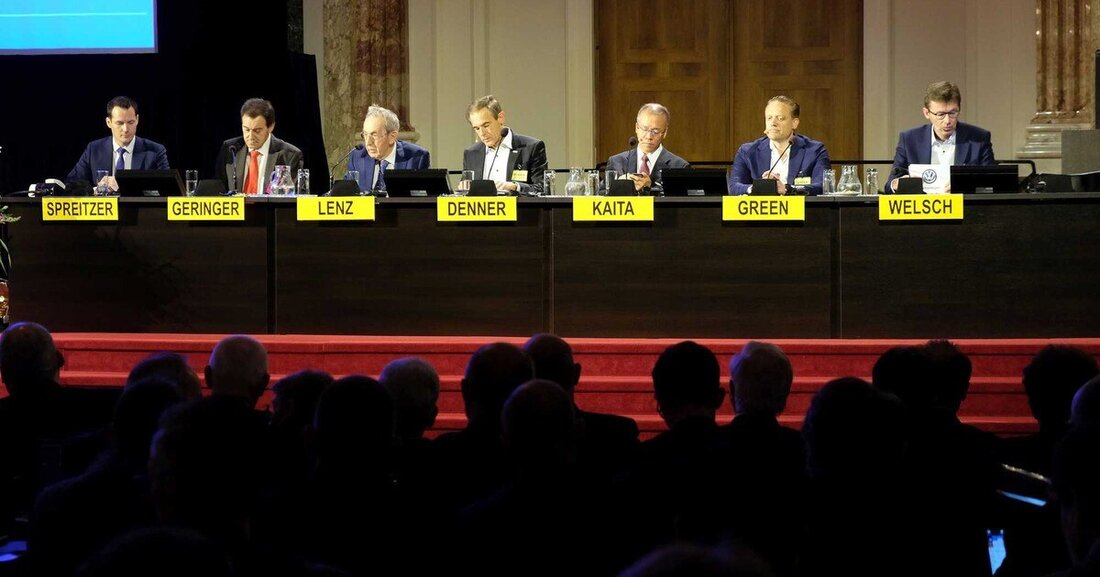Milestones at the 40th Engine Symposium
The four keynote speeches at the 40th Vienna Motor Symposium, which were given by representatives of the automobile manufacturers Bosch, Toyota, Volvo and Volkswagen, were about nothing less than the future of individual mobility.

Milestones at the 40th Engine Symposium
In the first keynote lecture, Volkmar Denner, CEO of Robert Bosch GmbH, will address, among other things, people's health in terms of air quality, climate change, traffic safety and mobility in cities. To improve air quality, Bosch has already developed technical solutions to reduce diesel nitrogen oxides, and particulate matter from gasoline engines and during braking has also been drastically reduced. When it comes to road safety, automated driving and innovative two-wheeler safety systems will make it possible to further reduce the number of accidents. Bosch is also working intensively on the electrification of all types of drive, from eBike to trucks with fuel cells. According to Denner, one in four new vehicles will be purely electric by 2030. At the same time, there will be a strong electrification of the internal combustion engine with mild and strong hybrids.
Keiji Kaita, Executive General Manager, Powertrain Company, explained Toyota's strategy in his keynote address. For 2030, Japan's largest vehicle manufacturer plans to produce 4.5 million hybrid vehicles (HEV) and plug-in hybrids (PHEV) as well as another million battery-electric cars (BEV) and fuel cell vehicles (FCEV). Only by electrifying the drive trains can Toyota's overarching goal of reducing CO2 emissions in the exhaust of new vehicles - and thus fuel consumption - by 90 percent by 2050 compared to 2010, be achieved.
For the Volvo Car Group, the future of individual mobility lies in the extensive electrification of vehicles. In his keynote address, Henryk Green, Senior Vice President Research & Development, reiterated Volvo's commitment to very rapid technological change with clear words: "We believe that electrically powered vehicles are currently the only convincing means of enabling energy-efficient transport on a large scale while minimizing CO2 emissions." Green announced that by the middle of the next decade, half of Volvo's passenger car production will be electric vehicles - including fully electric, plug-in hybrid and hybrid vehicles.
Frank Welsch, VW brand board member for technical development, wants CO2-Continuously reduce emissions from the entire fleet to zero and increase CO2-Realize neutrality across the entire life cycle. This year, Volkswagen is ushering in a new era of electromobility with the first representative of a whole family of purely electrically powered vehicles to come onto the market. The “ID. 3” shows the potential of the innovative modular electric drive system, said Welsch. The compact car with an expected price of under 30,000 euros is the length of a Golf and offers almost as much space inside as a Passat. Depending on the battery installed, ranges of 330 to over 550 km (WLTP) are possible.

 Suche
Suche
 Mein Konto
Mein Konto